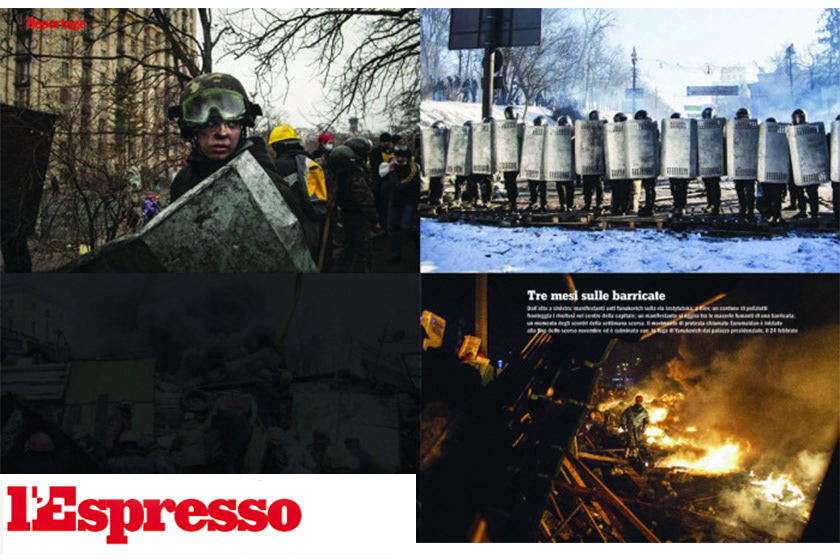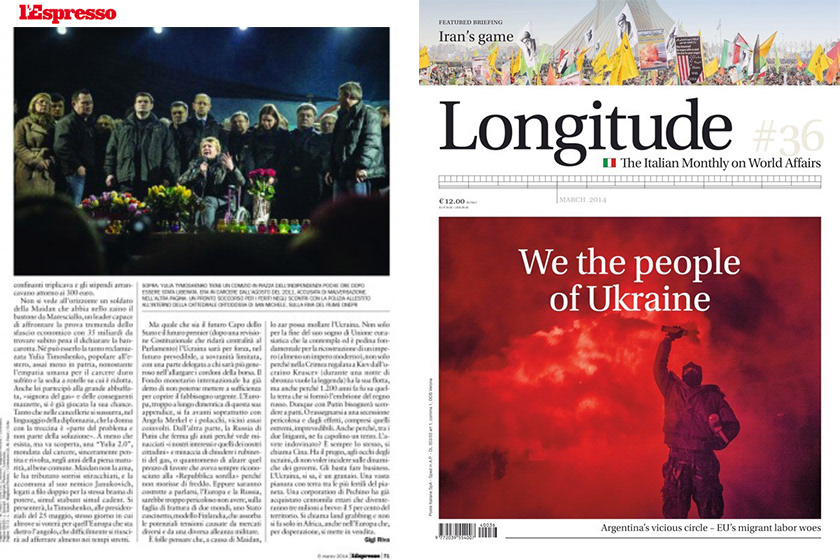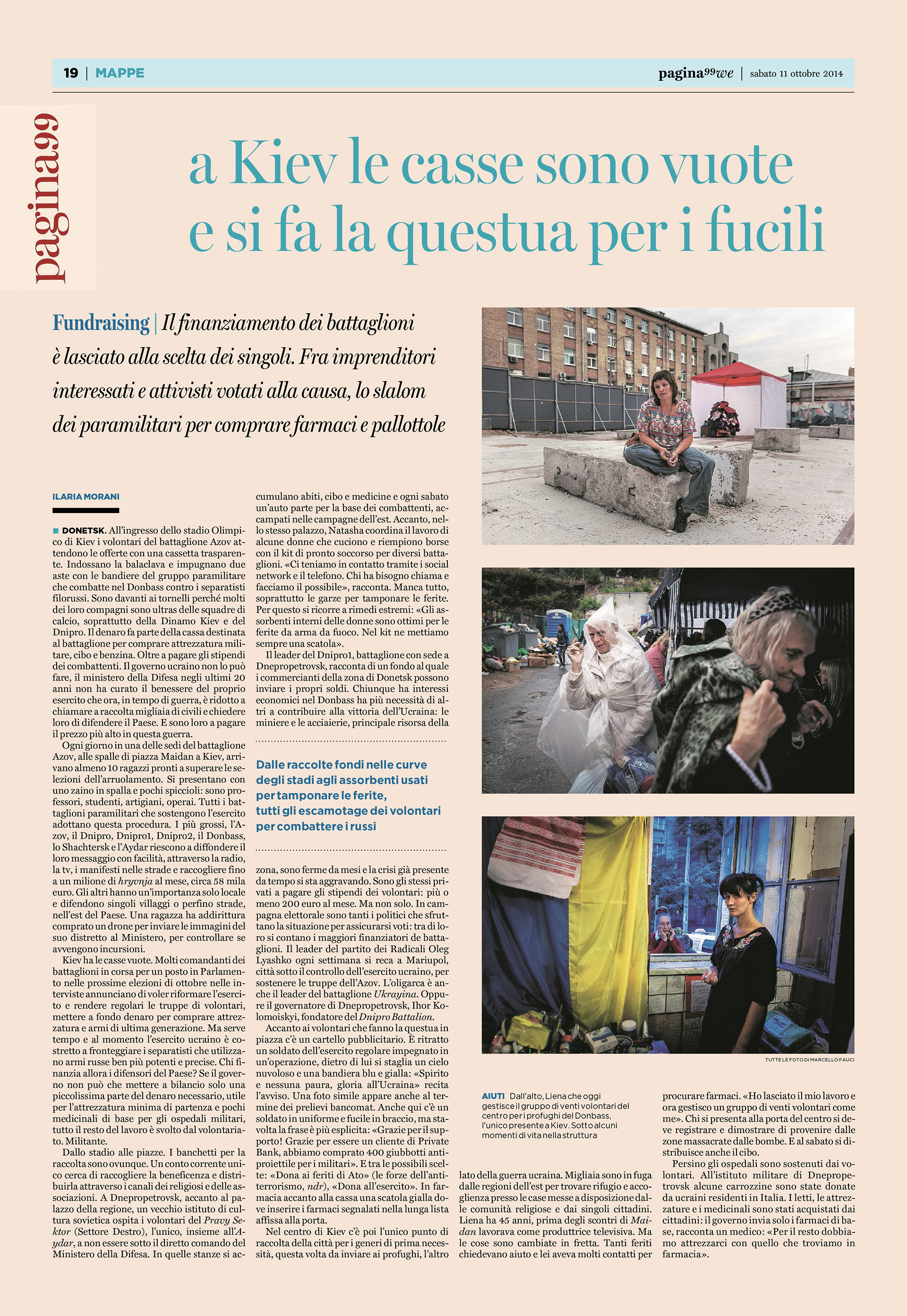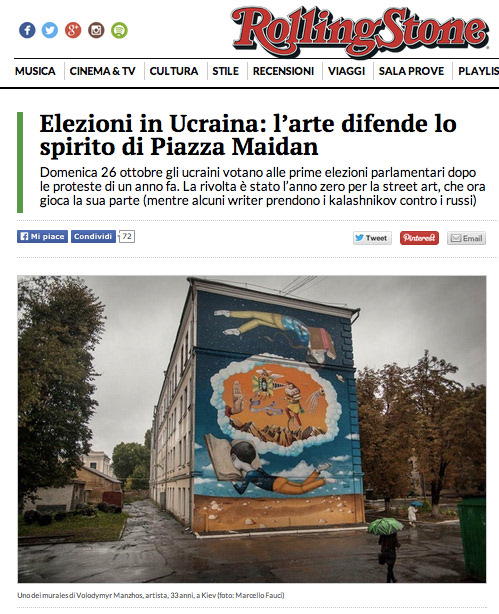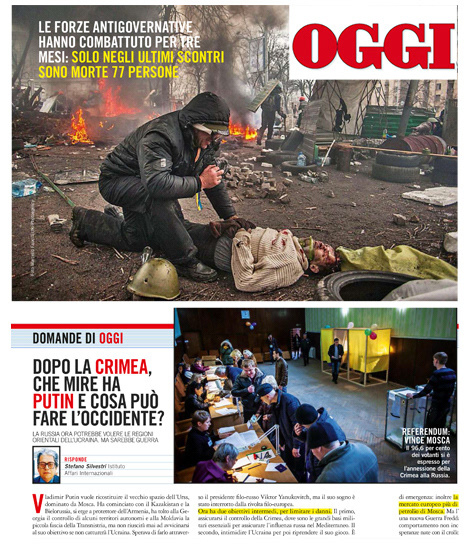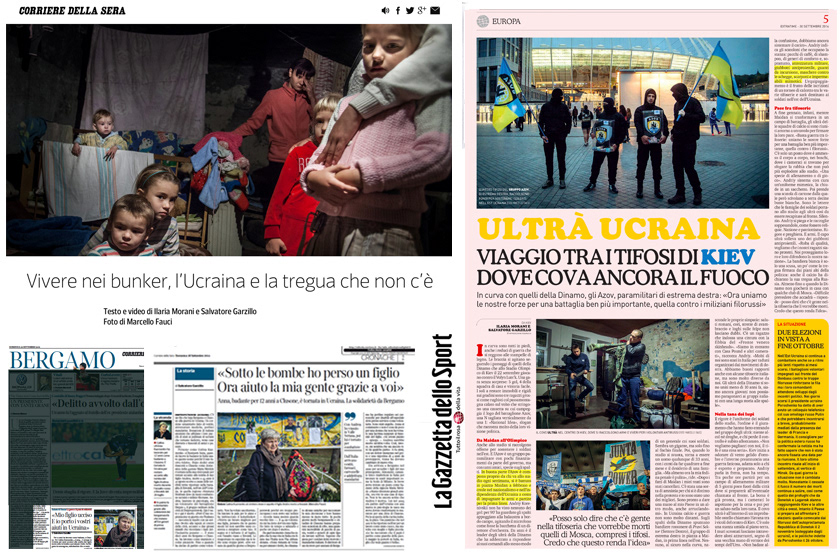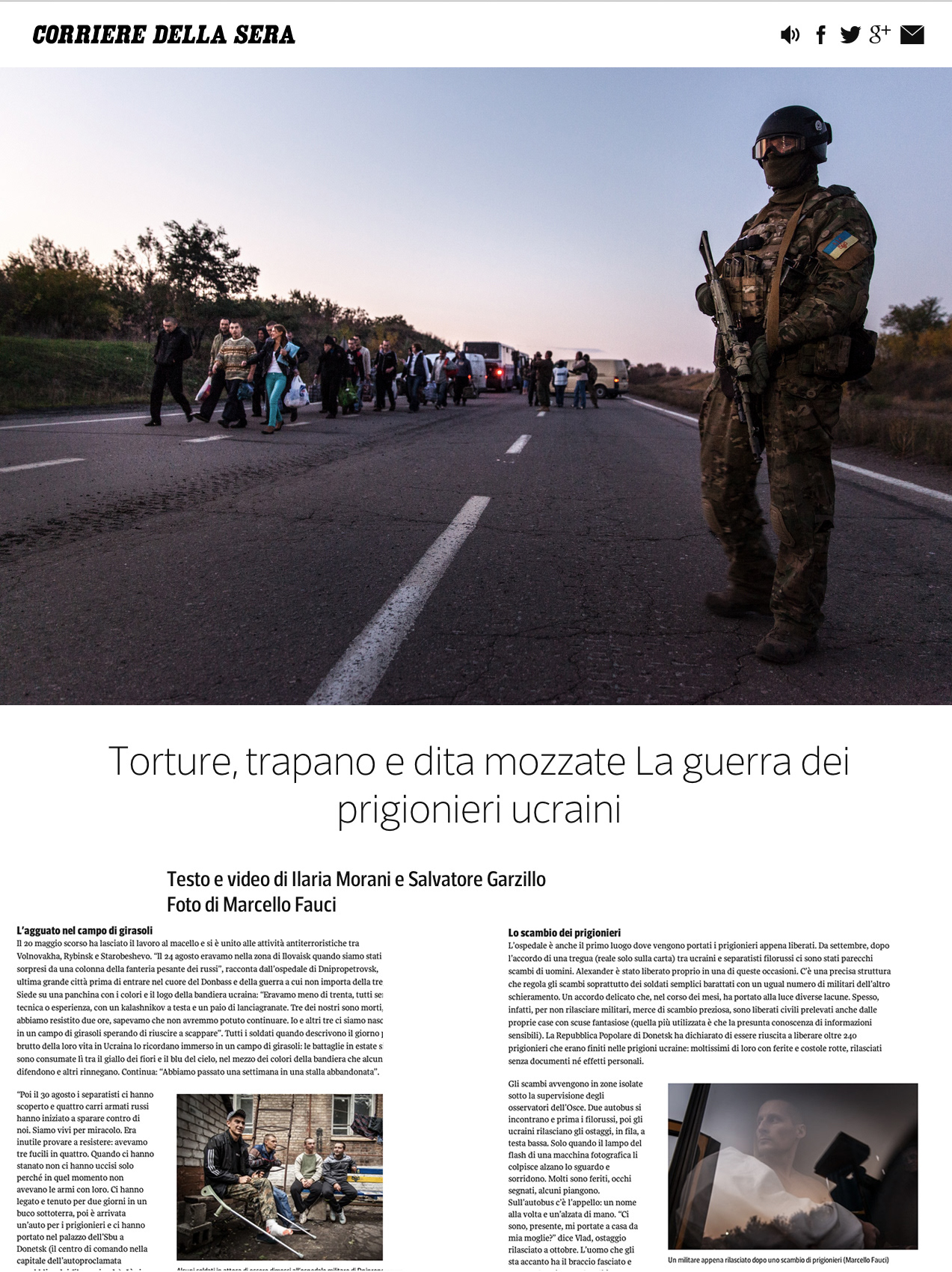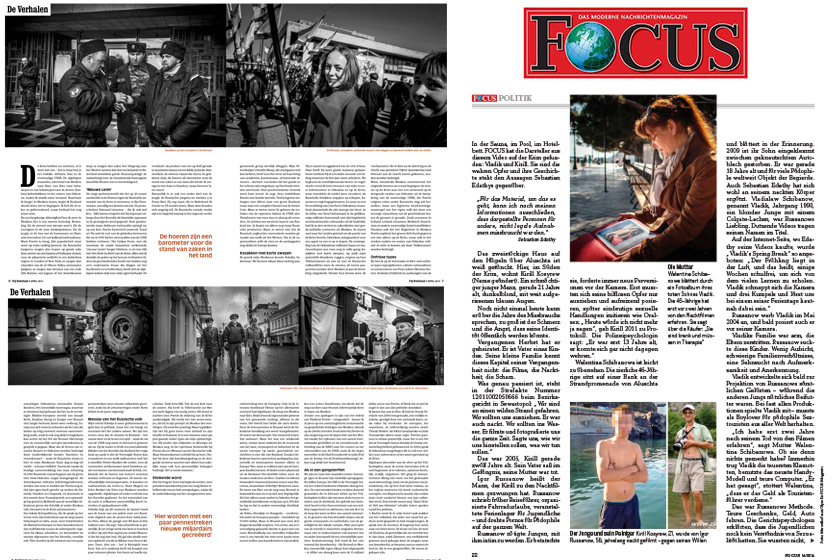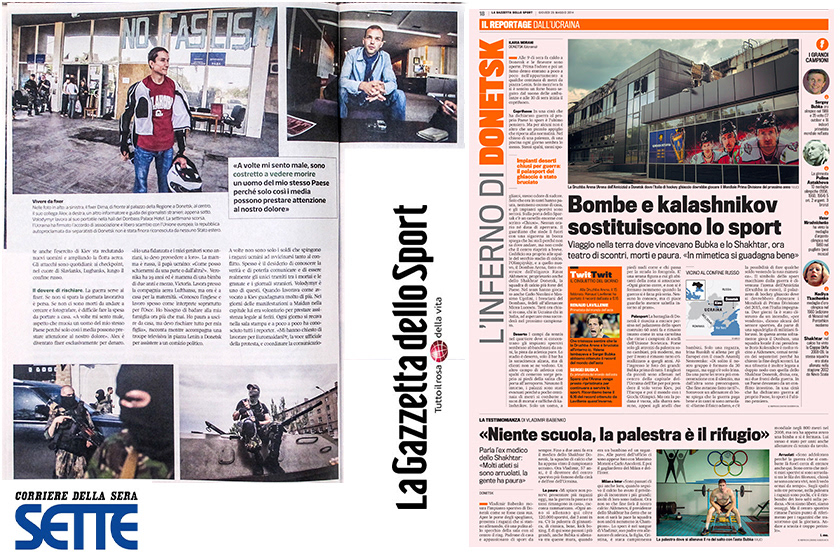January, 2014
Ukranian crisis is at his core. thousands and thousands of demonstrators are
occupying Maidan Square, in the center of Kiev, to defy protest ban and to
demand for the immediate resignation of their president, Yanukovich. Tens of
thousands of protesters rallied in Ukraine today, buoyed by pledges of support
from Europe and the United States, in a bid to wring new concessions from
President Viktor Yanukovych. More than 50,000 people could be seen on Kiev's
barricaded Independence Square -- that has become the epicentre of a two-month
protest movement -- and thousands more were arriving. Maidan square and the
government buildings are occupied: Protester, voulunteers and people lives there
untill the anti-government protest kick out the president.
occupying Maidan Square, in the center of Kiev, to defy protest ban and to
demand for the immediate resignation of their president, Yanukovich. Tens of
thousands of protesters rallied in Ukraine today, buoyed by pledges of support
from Europe and the United States, in a bid to wring new concessions from
President Viktor Yanukovych. More than 50,000 people could be seen on Kiev's
barricaded Independence Square -- that has become the epicentre of a two-month
protest movement -- and thousands more were arriving. Maidan square and the
government buildings are occupied: Protester, voulunteers and people lives there
untill the anti-government protest kick out the president.
















There is Roman is 26 years old, a former soldier who fought in Afghanistan. It
is now at the head of a small militia made up of a dozen twenty-somethings, who
patrol the streets of Kiev from midnight to dawn. In a situation of substantial
stalemate, the crisis in Ukraine is slowly becoming a war of positions, with
more and more military. Organized groups of pro-government mercenaries, called
Tituskha, attack the protesters outside the Maidan Square, the heart of the
revolt, and in the suburbs.
The militias, such as the one led by Roman, day maintain order and security
within the square, at night they're moving in compact patrols throughout the
city, to identify and "neutralize" groups of Tituskha. Within the occupied
palaces held true councils of war, briefing and training the techniques of hand
to hand combat.
A scenario that is getting closer to civil war.
is now at the head of a small militia made up of a dozen twenty-somethings, who
patrol the streets of Kiev from midnight to dawn. In a situation of substantial
stalemate, the crisis in Ukraine is slowly becoming a war of positions, with
more and more military. Organized groups of pro-government mercenaries, called
Tituskha, attack the protesters outside the Maidan Square, the heart of the
revolt, and in the suburbs.
The militias, such as the one led by Roman, day maintain order and security
within the square, at night they're moving in compact patrols throughout the
city, to identify and "neutralize" groups of Tituskha. Within the occupied
palaces held true councils of war, briefing and training the techniques of hand
to hand combat.
A scenario that is getting closer to civil war.





February, 2014
After several weeks of calm, violence has again flared between police and anti-go-vernment protesters, who are calling to oust President Viktor Yanukovch over corruption and an abandoned trade agreement with the European Union.Government protester move forward Istytunska street taking cover from suspected sniper fire near the Hotel Ukraine.
The deadliest clashes were on 18–20 February, which saw the most severe violence in Ukraine since it regained independence.Thousands of protesters advanced towards parliament, led by activists with shields and helmets, and were fired on by police snipers.
On 21 February, Yanukovych and the parliamentary opposition signed an agreement to bring about an interim unity government, constitutional reforms and early elections. Police abandoned central Kyiv that afternoon and the protesters took control. Yanukovych fled the city that evening.
























March, 2014
on March 16, 2014, concerning the status of Crimea that was conducted in the Autonomous Republic of Crimea and the city of Sevastopol (both subdivisions of Ukraine) after Russian forces seized control of Crimea.
The referendum was held amidst Russia's annexation of Crimea.The referendum asked voters whether they wanted to rejoin Russia as a federal subject, or if they wanted to restore the 1992 Crimean constitution and Crimea's status as a part of Ukraine. The final date and ballot choices were set only ten days before the referendum was held. Before, during and after the referendum was proclaimed, the Crimean peninsula saw Russian soldiers take over public buildings and Ukrainian military installations.
When the referendum was proclaimed, the Mejlis of the Crimean Tatar People called for a boycott of the referendum.
























April, 2014
Bachysaray is a small town, located 30 km from Simferopol.In Bachysaray 30% of the population are Tartars, native Crimean muslims that during the second world war were deported by Stalin's Regime to various regions of the Soviet Union ( Uzbekistan , Siberia, Abkhazia, Kazakistan).Only in the nineties, after fall of the Soviet Union, they were allowed to return to their land, where they started to rebuilt their homes and celebrate their traditions and religious beliefs .During these days of crisis, and after the referendum which ratifies the annexation of Crimea to Russia, the level of concern for this minority rises.
Tatars live with the fear that they might suffer once again the same injustices, grievances and provocations from the pro-Russian civil-militia, that in the meantime, backed by the Russian army, have occupied the Ukraine military base in the centre of the town.At the time being, the Tartars carry on with their daily life, patrolling the streets of their village night and day, and in the meantime the Russian troops took control of the military base overlooking the city in order to keep track of the whole area.
















May. 2014
While in Lenin Square od Donetsk is proclaimed the independent republic of Nova Russia, no polling station is open in the city center.A few smaller towns in the region show a very low turnout in the Ukrainian presidential elections. The new President-elect Poroshenko in the evening announces that there will be no mediation with the pro-Russia Separatist militia who patrol the entrances to the city under the leadership of Denis Pushlin.
During the night and in the morning of May 26 clashes come close to the city, from the front line arrive the first war bulletins.And the first victims among civilians.In Donetsk the streets are empty as people begin to feel something ambiguous, firefights and bombings closer and closer in to the city center.
































September, 2014
By late August 2014, Ukraine had re-taken most separatist-held territory and nearly regained control of the Russia–Ukraine border.In response, Russia covertly sent artillery, tanks and personnel across the border, and what it called a "humanitarian convoy". Ukrainian officials called this a Russian "stealth invasion".
The Russian incursion helped pro-Russian forces regain much of the territory they had lost. Alexander Borodai, former 'Prime Minister' of the DPR, later said 50,000 "Russian volunteers" had fought in the first five months of the war.
Ukraine, Russia, the DPR and LPR signed a ceasefire agreement, the 'Minsk Protocol', on 5 September 2014.Ceasefire breaches became rife, and heavy fighting resumed in January 2015, during which the separatists captured Donetsk International Airport
























Press Releases
